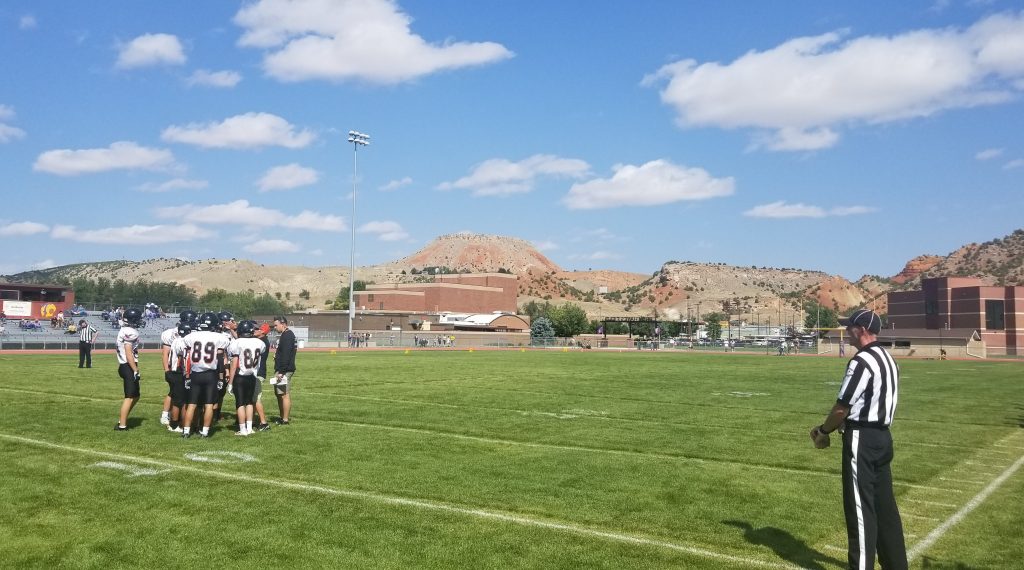Park County Public Health Talks COVID-19 Boosters & Treatment
Written by Andrew-Rossi on August 30, 2021
Park County Public Health is doing its job to ensure residents get the right information – and the right treatment – during the latest surge of COVID-19.
Once again, Park County health professionals are doing their part to spread the word on all things COVID-19 – numbers, testing, and treatment. However, the virus and the efforts to fight it are always changing. New recommendations from the C.D.C., the Wyoming Department of Health, and the Food and Drug Administration are coming in.
On Friday, August 27, Park County Public Health Nurse Bill Crampton addressed the recent discussion of a COVID-19 vaccine “booster.” Crampton reminds everyone that while a booster is recommended and being administered, it’s only for a small part of the population.
“At this time, there is no approval for a third dose of any of the COVID vaccines. That may come eventually. There is still much discussion by the medical experts as to what is the best way to introduce this and to determine actual need. There have been numerous reports that there will be a recommendation for a third dose. Some have called this a “booster.”
A third dose is only approved for a specific population at this time. It includes those undergoing cancer therapies and other treatments that involve a significant impact on the immune system, such that the patient has to avoid crowds, wear masks while interacting with other people, and is taking significant medications that reduce immunity. Their immune system isn’t able to fend off everyday diseases like the common cold.
Wyoming Department of Health, The Wyoming Immunization unit, and all Public Health offices and anyone giving vaccines, is dependent on the CDC and the Food and Drug Administration to provide approvals for uses for all vaccines, including the various COVID 19 vaccines. There was a meeting scheduled to discuss the approval of a third dose of the COVID vaccine. However, that meeting was postponed. Please be patient.
These steps are not taken lightly. Many will tell us that a third dose is a foregone conclusion when in fact, it is not. Park County Public Health, along with its many partners, will let the residents of Park County know when that approval occurs and should have the vaccine to provide to those who desire a third dose. Early scheduling is discouraged at this time.
Again thank you for your patience while this is being worked out by the Food and Drug Administration.”
Crampton also reminds Cody residents that vaccinations are and will continue to be available through Park County Public Health and other partners.
“As everyone knows, these vaccines are safe, effective, and available through many partners in Park County. All of our partners are scheduling first and second doses, including Public Health. You can go to parkcounty-wy.org to sign up for a vaccine clinic with Park County Public Health.”
Meanwhile, Park County hospitals are employing a new COVID-19 treatment, recently approved by the F.D.A.
Dr. Billin, Park County Public Health Officer, announced that both county hospitals – Cody Regional Health and Powell Valley Healthcare – have been using REGEN-COV antibody treatment. However, unlike the COVID-19 vaccine, this treatment must be prescribed by a doctor.
Last week, Dr. Billin posted all the details on REGEN-COV and its use in Park County on the Park County Public Health Officer Facebook page.
“Regeneron is the name of the company, and REGEN-COV is the monoclonal antibody treatment they produce. Both hospitals in the County have been providing these infusions when prescribed by their healthcare provider.
Casirivimab plus imdevimab (REGEN-COV) and sotrovimab can be used for the treatment of mild to moderate COVID-19 in adult and pediatric patients (12 years of age and older weighing at least 40 kg) with positive test results and who are at high risk for progression to severe COVID-19, including hospitalization or death.
While the following conditions may place adult and pediatric patients at higher risk for progression to severe disease, the use of the monoclonal antibodies is not limited to patients with these conditions. The determination of whether a patient is at high risk for progression to severe disease is at the discretion of the clinician.
- Older age (for example, age ≥ 65 years)
- Obesity or being overweight
- Pregnancy
- Chronic kidney disease
- Diabetes
- Immunosuppressive disease or immunosuppressive treatment
- Cardiovascular disease (including congenital heart disease) or hypertension
- Chronic lung diseases (for example, chronic obstructive pulmonary disease, moderate-severe asthma, interstitial lung disease, cystic fibrosis, and pulmonary hypertension)
- Sickle cell disease
- Neurodevelopmental disorders (for example, cerebral palsy) or other conditions that confer medical complexity (for example, genetic or metabolic syndromes and severe congenital anomalies)
- Having a medical-related technological dependence (for example, tracheostomy, gastrostomy, or positive pressure ventilation not related to COVID-19).”
Dr. Billin adds that the treatment just got F.D.A. approval, but not universally.
“The FDA has recently updated the REGEN-COV emergency use authorization (EUA) to include use for post-exposure prophylaxis in high-risk individuals. The definition of high risk is the same as it is for the original EUA (treatment after a positive test). Monoclonal antibody therapies continue to be limited to the same group of high-risk individuals (outlined above). Evidence appropriate deviations from this list may be made at the discretion of the ordering healthcare provider.”




